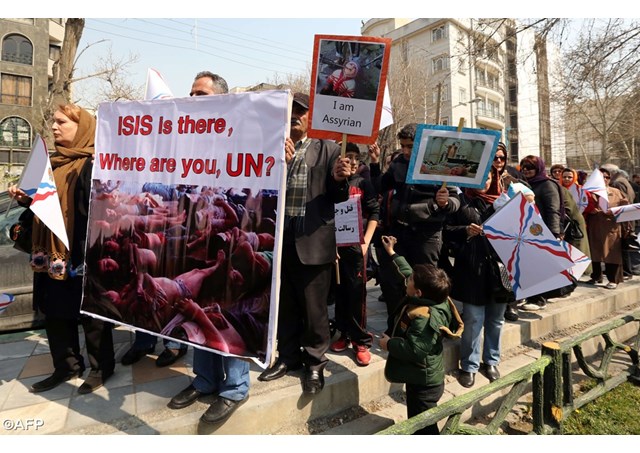
U.S. envoy: Responding to religious freedom violations

(Vatican Radio) The U.S. Administration’s International Religious Freedom envoy says more and more political, religious and civil society leaders are standing up against religious intolerance and recognize the need to "denounce and delegitimize" extremist groups that practice religious persecution. That assessment came from Ambassador David Saperstein, the Ambassador at Large for International Religious Freedom, who is among the participants attending an international conference this week in Rome, entitled “Under Caesar’s Sword,” that looks at how Christian communities respond to religious persecution. Figures show that Christians are the victims of 80 percent of all acts of religious discrimination in the world.
Ambassador Saperstein said Pope Francis’ heroic and courageous voice against this injustice is “empowering and inspiring” the international community to stand up and react to this growing wave of religious intolerance. He was interviewed by Susy Hodges.
Listen to the interview with David Saperstein, the U.S.’s Ambassador at Large for International Religious Freedom:
On a global level, Ambassador Saperstein said we have witnessed increasing religious intolerance over the past decade but noted that this negative trend is counter-balanced by more and more political, religious, civil society leaders and communities recognizing the threat and joining together to take a stand against religious persecution. He said the “greatest emerging threat” in this context is the growth of “extremist groups who are willing to use violence to destroy other religious groups…. or to impose their religious views on others.”
Asked about the most effective ways of responding to this threat, Saperstein explained that it requires a multi-pronged approach that includes leaders and communities joining together to criticize “restrictive” policies (on religious belief) and call for them to change, plus “lifting up the problems that do occur” to expose them and putting “a human face” on this issue of religious persecution.
Other important ways of countering this threat, said Saperstein, are legal enforcement (of laws outlawing religious persecution) and better education of people, especially the young, about other religions “to defuse fear and suspicions” about the other.
Saperstein praised Pope Francis for his “heroic and courageous” stand against religious intolerance and his “forcefulness” in speaking out against these and other issues of injustice. The envoy predicted that the Pope “will continue to be a voice” that identifies the greatest problems of injustice in our world and “the urgency” of responding to the ongoing religious persecution, especially of ancient Christian communities in the Middle East that, he warned, risk being “wiped out" in some areas.
| All the contents on this site are copyrighted ©. |


